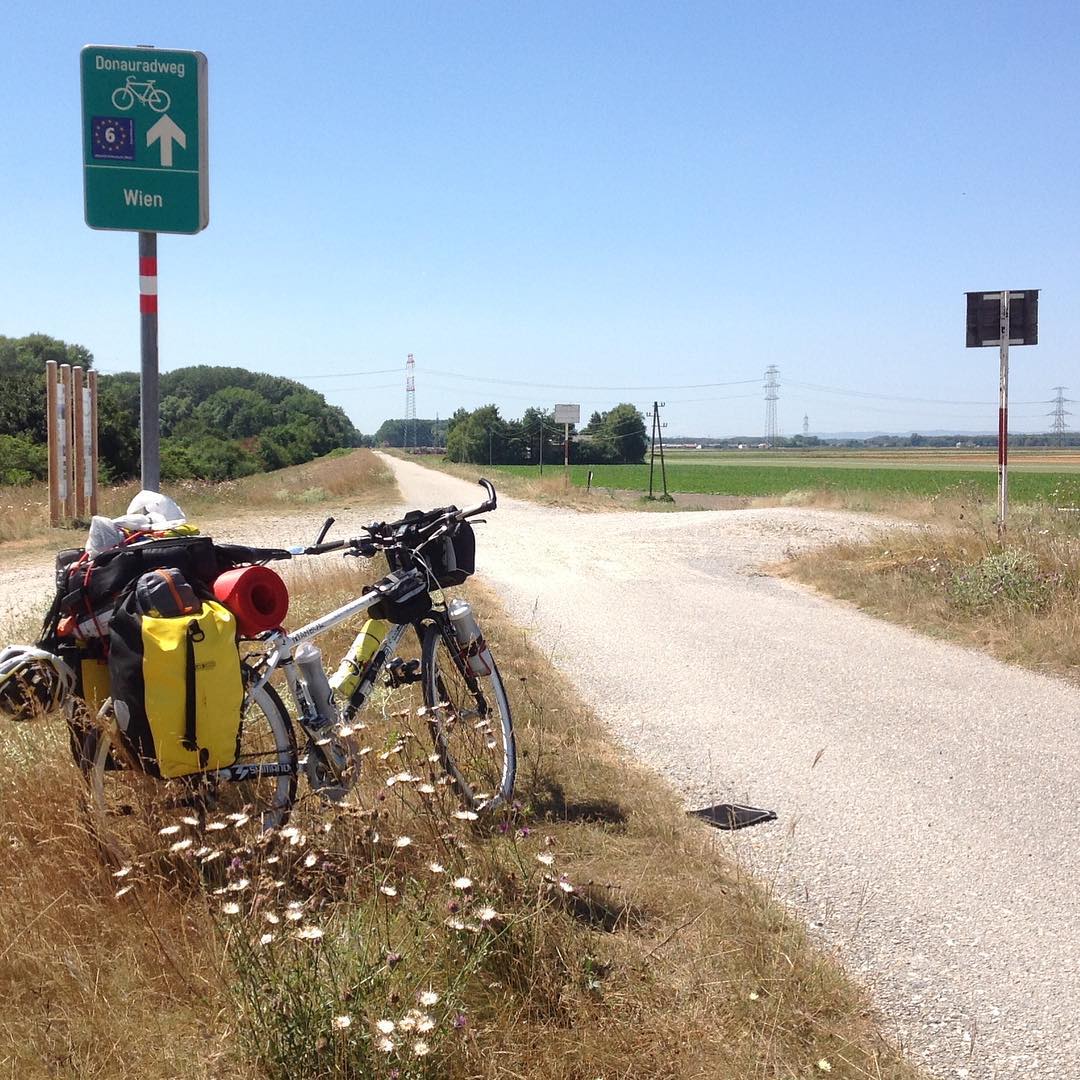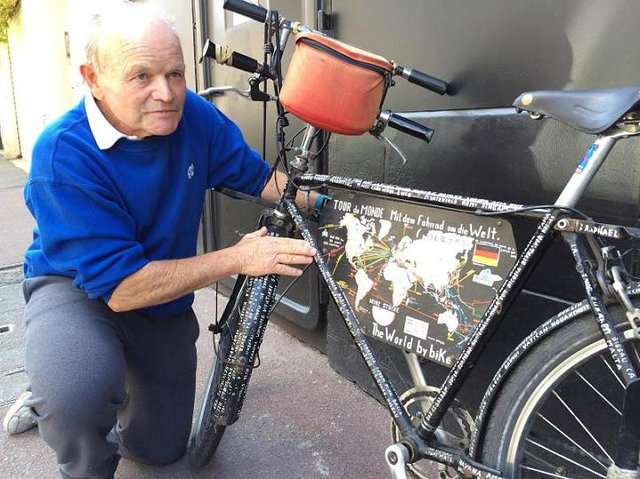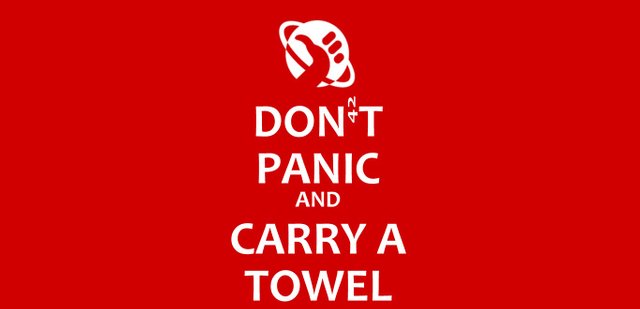How to Get Prapered for Long-Distance Cycling
Hello!
After two long-distance cycling trips (once across Europe, once inland), I think it's worth to share my thoughts.
Surprisingly, trust me, it's not that dangerous or impossible to do. Basically, all you need is a bicycle and courage. If you are not attempting to cycle uphill Alps or something not recommended for the beginning, I bet you will see how it goes swimmingly in your first day... But it's not that easy too. If you think that, it's an oxymoron, I highly recommend you to think once again, after your first day of the trip!
Following content may work in some conditions or cause a problem for you during the trip and keep in your mind that every experience is unique. So everything is depending on geography, political situations (such as borders, zones), locals and so on...
It's time to warm up!

Step #1 - Initial Spark
For me it was so easy. I saw just a photograph of a Belgian cyclist. There was only one human-made thing in the frame. Bicycle! There was nothing else. No nothing... I said to myself, I need to taste it. No surprise, I was not a professional cyclist. I had to read, research and learn a lot. And then, my awaited aha moment came up with a cycling legend, Heinz Stücke.
Heinz Stücke(born 11 January 1940) is a German traveler, vagabond, and long-distance touring cyclist from Hövelhof, North Rhine-Westphalia. In 1995, he set a world record for bicycle touring. In a global journey spanning more than 50 years, he has traveled several hundred thousand kilometers by bicycle.Wikipedia

Step #2 - Requirements
- Mid-class bicycle
- Cycling equipment
- Cycling jerseys (optional)
- Detailed geographic map with elevation (online / offline / printed but handy ones)
- Enough patience to research
- Enough time to think and get ready
- Patience for the rest
- Cool playlists
Step #3 - Get Ready
Actually requirements will make us ready for most of things. Because you will realize the costs, you will hear of good and bad stories etc. But we need more. I highly recommend to learn how to survive with dry foods, and cooking vegetables. And we need to power up the muscles.
- Fitness (cycling, running, pushing-up...)
- Quitting smoking (in any case)
- Quitting alcohol (beer is worth to drink at night before you start to cycle next day, makes you sleep tight)
- Saving money, spending less money
- Travel insurance (not just for visa applications, it should cover all the trip)
- Return ticket or plan (flight is an option, the cost is mostly reasonable like 5SBD - 30USD each airline has their own rule)
- Daily trips (20km is good to test yourself and you realize what you need during the big trip)
- Learning bicycle mechanics
- Receiving your travel documents (insurance, visa, passport...)
- Contact tools (social media accounts may help to find a host)
- Accounts on hospitality websites (warmshowers, couchsurfing...)
Step #4 - Hit The Road!
Oh dear, if you could stand until here, you are almost ready to go! This is the most amazing and exciting part / day of the trip. You should never step out your home if you are not sure even for going out for a rip with your mates. As I mentioned Step #3.3, a bottle of beer can make you sleep good, relaxes the body, does not make you drunk (I assume ahahah). I use it as a simple muscle relaxant. Choose or find your own activator / catalyzer. That's why you need Step #3.7. So let's take a look, what may improve our cycling experience.
- Country-side is life saver (you can't place your tent easily in a big city and you can reach fresh food cheaper, people in small places are more open to adventurous guys than subway passengers)
- Plan your trip near villages rather than empty lands (you may need human-kind)
- It's always cute to say Hi to younglings! They will pay more attention than you need :)
- Don't look so fancy or cool. Appear poor than you are. People will think that you are cool (Mostly crazy)
- Wash your clothes, when you can
- Dry your clothes while you cycle (wind and the sun will help)
- Stay under trees if there is no rain
- Listen up the birds (you are not only one survivor there)
- If you see a hitchhiker or cyclist stop by and ask for anything you can share (unwritten rule)
- Shoot videos and photographs! (I ran to the shop to buy a GoPro after my first trip in Europe)
- If you see a dog or dogs, slow down, you are going to be attacked! (calm down, see Equipment and Toolbox.18)
- If you are under attack, keep the bicycle between you and the attacker!
- Do not panic in any situation, you will miss every single moment (even the worst memories) when you go to your office on a monday morning
- Do not wild camp next to someone's property
- Do not leave your garbage and fire behind
- Put your food away from your tent on a tree at least 200mt. if don't know how to feed a wild pig
- Ask people if it's possible to put your tent in a private land or let local authorities know before you stay (beach is the best type of land to stay over-night)
- Fill your bottles in public, do not pay for water if tap water is drinkable (75% of your body is water, strange to pay for it)
- Do not carry in cash more than your weekly coverage
- Do not ask distances to the locals (10mins. drive may take up to 2 hours for you, your avg. speed is 10kmph)
- My way or my way, do not choose a highway (dangerous, forbidden, far away from shops or anything, hard to stop)
- If you find someone cool for you, the more the merrier. (Max. three people recommended)
- Swimming pants are cycling friendly, you can take a shower anywhere in public
- Muesli, peanut butter and similar stuff are cool to carry
- Riding glasses, helmet and bicycle gloves are important (you always get your hands bloody caused by shape parts of the bike or small accidents and any handlebar hurts your hands)
- Frequent and short breaks are important
- You should not spin if it's not required, it won't affect if you cycle 100km a day
- Do not cycle more than 100km a day if you are about to cycle next day
- You can work and drop by in farming fields to stay there for a while as a volunteer (same for hostels)
- Follow the weather forecast everyday and wind speed may affect more than snow
- Do not cycle at night! Be early bird.
- Make a list of important sentences if you can not speak the local language (you can show a sentence to express your own, e.g. "May I place my tent in your land, please? I am going to stay overnight.")
Step #5 - Return of The Jedi
Yep, it's cool. You have done! But I regret to say that but nothing will change in a second when you are back. I do clearly remember. I was back to Istanbul, home. I drank a bottle of beer. The same taste, the same sofa, and the same IKEA table, you probably see it in any friend's house. As we talked in Step #2.7, patience. Something will change by time for sure or you will realize the difference. Try it yourself.
I recommend you to make a list to compare. Before and after. Otherwise you should pay more attention to your memories to analyze.
Good To Have / Must To Have
Trust me, in a regular trip, you may face so many problems. So we need knowledge and a toolbox. Google it, you will find so many articles and videos.
- How to fix your breaks
- How to fix / fit your gears
- How to change the inner tube
- How to fix the inner tube
- How to fit your seat
- How to fix the chain
- How to clean the bicycle
Equipment and Toolbox
- Bicycle (thank you captain obvious)
- A comfortable seat (Brook's is my fave)
- Front and rear lights
- Handlebar bag
- Frame bag is useful
- Actual bags (water-proof)
- At least a pair of water bottle
- Pomp
- Rear and front racks
- Tent for two persons (one side is for your bags)
- Sleeping bag & mat
- Air pillow
- Lock for bicycle
- Speedometer (the plans require calculation)
- GPS, compass, map
- Bell
- Headlight for your head (To fix the stuff at night or for camping routines)
- Dazer II (saves your life and trip - Ultrasonic Dog Deterrent)
- The medicine you need (ointment, antihistamines...)
- Extra shoes and flip flops (your cycling shoes are gonna be deadly)
- Tiny speaker (it's good to power up yourself with music when you are alone)
- Headphone (when you are trying to voice call via internet in public, probably you won't hear the person you talk to)
- Towel

Keep in Your Mind
- Almost anywhere in the world, wild-camping requires permission (Turkey is an exception)
- Forest means mostly more hills in general and wild life but trees are blocking the wind, provides more oxygen and place to stop than empty flat lands. You may look for a sun shelter or may face head-wind with pain.
- The best backup plan is train-ride. Cheap and more bicycle / environment friendly. It may help you to cross some borders or any barrier like mountains and so on.
- V-breaks are as good as disc-breaks. You can easily fix and find any broken or missing piece
- Steel bikes are fixable anywhere in the world with a welding machine. You can not get your bike fixed easily if it's made of carbon or aluminum.
- Carrying a tablet (such as iPad) will definitely help you! The battery performs much better, it's not hard to carry and handy for using internet for social media or map applications.
- I highly recommend to use Google Maps with offline version. Yeah, Maps provides it in the native app.
- You should carry hard and soft copies of your travel documents including your ID and passports. It does not make you travel free but helps you to declare your ID if you lose your travel documents. And you will not remember your travel insurance number when you are in the hospital.
- Carry a piece of paper which defines who to talk in case with their full names, phone numbers and languages they can speak.
- Display your blood type on your bike
- Wrapping up 1.5lt plastic water bottle with sleeping mat keeps the water cold and fresh for hours in a sunny day
It's time to stop here but it was fun to write it for me. I wish you feel the same thing while you are reading. I added my last cycling trip video below. If you like to see, scroll down a little.
Stay cool!
This blog post is based on my personal experiences. Please make sure that you are able to do it. Any feedback is more than welcome!The Long Road Home from Burak S on Vimeo.
.
Cool and usefull guide!
I'm a dane, and we bike alot!
This make me want to do it one day :D
Good to hear! You should make it as soon as possible. Words are not enough to explain :)
Haha I will.
Motorbiked through Vietnam for some months.
This inspired me to make a post about my trip :)
Its so nice to read such great and well made content thank you
nice
this is helpful because I am preparing a cycle trip
Thanks! I hope you will face the joyful part only!
Well explained. Resteemed it!
Thanks mate!
Congratulations @ikidnapmyself! You have completed some achievement on Steemit and have been rewarded with new badge(s) :
Click on any badge to view your own Board of Honor on SteemitBoard.
For more information about SteemitBoard, click here
If you no longer want to receive notifications, reply to this comment with the word
STOPYou are upvoted and resteemed by Thank You Bicycle - SteemIt Cycling Community!
It is our mission to spread good vibes of cycling across Steemit. We support you!
Keep those weels rolling and enjoy the ride!!
If you want to know more about our mission click here.
If you want to join us, click here.
If you do not like our activity, reply with STOP to this and we will leave you alone
Reading your checklist gives me the chills, specially the hit the road part..
Nice video..